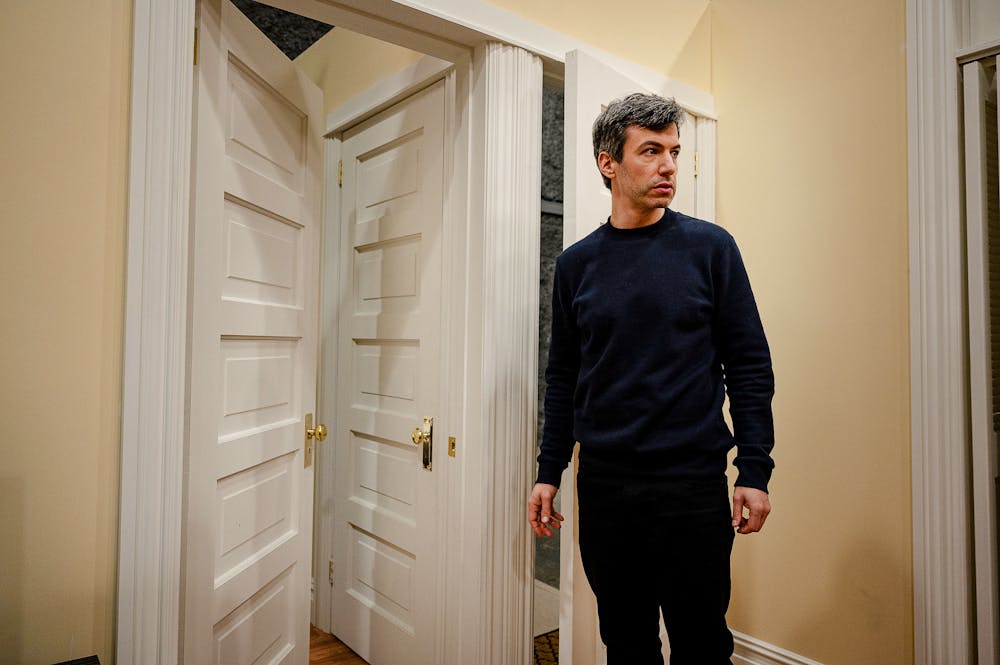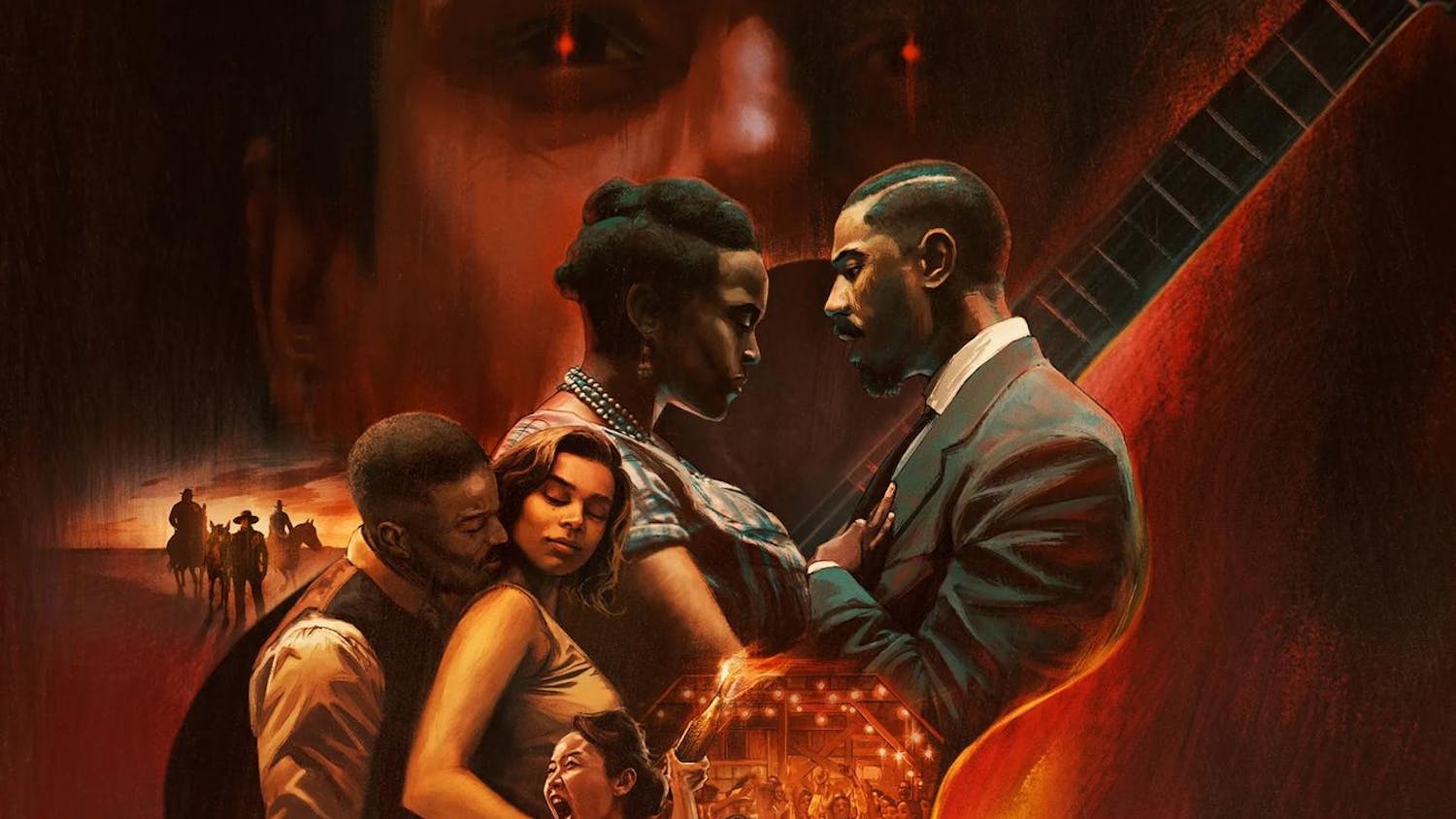When Comedy Central’s docu-reality comedy television series “Nathan For You” ended in November 2017, viewers were left with a doozy of a finale. The show usually followed Nathan Fielder as he came up with out-of-the-box solutions for struggling small businesses. Most famously, he changed the name of an independent coffee shop to “Dumb Starbucks.” But in the finale, the subject of the show takes a turn from what viewers would usually expect. The episode, titled “Finding Frances,” is a full 90 minutes and follows Fielder as he helps an elderly man he met in a previous episode search for his long lost love. In this episode, Nathan comes up with an idea for how to get people to feel more comfortable in their interactions — rehearse them. This concept, which was in its infancy nearly five years ago, becomes fully formed in Fielder’s new television series on HBO, “The Rehearsal.”
“The Rehearsal” starts off relatively simply by asking a question many have probably thought about before — what if you could rehearse any interaction or experience you dread before actually going through with it? The first episode faces this question head on by following Kor, a man who is a member of a competitive trivia team but who has lied to his teammates by saying he has a master’s degree. When the lie starts to catch up to him, Kor enlists the help of Fielder to set up a rehearsal for a conversation with a friend where he reveals the truth. To practice the interaction, Fielder constructs an exact replica of the bar where the meeting will take place and fills it with actors playing staff and patrons. Then, an actor plays Kor’s friend, and the two practice a variety of scenarios to prepare him for the interaction. To add another layer of meta absurdity, while this is going down, Fielder is also rehearsing how he is going to walk Kor through the rehearsal.
This is a phenomenal opening episode to this season because it sets a tone that’s equal parts absurd and awkward without giving away what the show will actually become. From this first episode alone, one might assume that “The Rehearsal” is an anthology of these sorts of stories, where each week the show explores a new subject and has a new set of problems to unpack. But instead of keeping the show at the same level of focus for the duration of the season, each episode of the show pulls further back, making the goals of Fielder’s rehearsals less obvious and more fascinating.
In the second episode, we meet Angela, a single woman in her 40s unsure whether she wants to have kids or not. The rehearsal set up for her is much more complex than the prior one. In order to rapidly go through the motions of motherhood, the show hires multiple child actors from infancy to the age of 18. These actors switch out to simulate the child aging, giving Angela the experience of 18 years of motherhood in three months. Due to unforeseen circumstances (to reveal them would ruin the show), this rehearsal becomes the subject of the rest of the season. Instead of hopping around from rehearsal to rehearsal, the show sits on Angela’s experience in this simulated world. Occasionally, the show looks at other rehearsals, but only as side plots to the main narrative.
As a real world subject, Angela is one of the more compelling people to be on television in recent memory. The initial impression of her is that of a relatively harmless Christian woman who is simply unsure of where to take her life. Through the trials and tribulations the show brings, her true colors are revealed as a somewhat manipulative conspiracy theorist who may have more bad intentions than initially let on. The show tries to unpack the ideology of Angela, but as it tries harder to figure out this person, the narrative grows more confusing. The interactions between Fielder and Angela provide what is easily up there with the funniest moments in television history. Angela’s convictions about her QAnon-adjacent beliefs and Fielder’s cringe-inducing awkwardness mix together like boiling water and oil, with the explosions that follow too captivating to look away.
To understand “The Rehearsal” is to understand Nathan Fielder — a task that may prove to be more difficult than all of the problems our greatest scientists are solving today. Now, why is Fielder such an enigma? For one, he is not his actual self. He’s playing a character; that character is Nathan Fielder. Nathan Fielder plays Nathan Fielder the same way Sacha Baron Cohen plays Borat. He never breaks character and the main purpose of his presence on screen is to extract absurdity out of real people. But unlike with Borat, who uses brash offensive language and over-the-top energy to get his results, Fielder achieves his goals by being painfully awkward and severely understated. He brings an unrivaled ability to ask simple questions that yield wild answers and maintain composure through it all. For example, Angela goes on a tangent about how Google promotes Satanic worship, to which Fielder responds with an “oh, okay” and lets the conversation continue. This show reveals throughout that many subjects, to put it lightly, have problematic ideologies. Instead of confronting these ideas head on, the show gives them a fairly blank target in Fielder and uses his impassiveness as a way to reflect the absurdity onto the audience.
Nathan Fielder, the character, is naive and timid while Nathan Fielder, the director and creator of “The Rehearsal,” has his finger right on the pulse of this entire experimental production. This contrast between the two Fielders allows the show to feel like it has great scope and ambition while its creator feels unable to handle the premise. Much of the humor of the show comes from buying into the character of Nathan Fielder and wondering how he’s able to create such elaborate setpieces and premises while also seeming like he can hardly maintain a conversation that lasts longer than two sentences.
There has been a lot of discourse online over the morality of the contents of “The Rehearsal,” mostly over the fact that the show can come off as quite exploitative. This impression comes from the fact that the subjects of the series are being vulnerable, which is in turn played out for comedic purposes. But this is far too reductive of a judgment to be placed on a show with such broad ambitions. Yes, there are moments when it seems that the intention of Fielder is to have the audience laugh at someone for being “weird,” but it never comes off as particularly mean spirited. Kor, the first subject of the show, is timid and anxious and as a result says things that a person with those traits would say. So while the audience is led to laugh at these moments, it’s not because they’re putting down Kor, it’s because his anxiety is so relatable that you can’t help but laugh at how understandable and universally painful these moments are. All the exploitation of “The Rehearsal” comes from getting a relatively unfiltered look at the lives of real people. The show doesn’t hold back in documenting the good, the bad and the ugly of regular people, but it also doesn’t try to fabricate what isn’t there.
Talking about “The Rehearsal” to someone who has never seen it is like walking on a field that has more landmines than it does untouched soil. You simply cannot explain how a show with such a simple premise slowly transforms into a deep deconstruction of humanity without completely ruining what makes watching it so great. It’s also hard to emphasize how funny it is. “The Rehearsal” may be a deconstruction of reality TV culture, a look at the perils of chasing fame, a meditation on the role of fatherhood in contemporary society, an anthropological look at the vicious indoctrination tactics of fringe conspiracy groups or a guide on how to reconnect with Jewish faith and pass that down through generations. Maybe the show’s about all these things; maybe it’s about none of them. “The Rehearsal” throws a lot on the table and you decide what to pick up. But no matter how much or how little you decide to read between the lines, underneath this is one of the finest and most unique television shows to make its way into people’s homes. That can not be stated strongly enough. Watch it as soon as possible and sit with it as much as you can before this show goes even further down the rabbit hole for its imminent second season.

Finn Kirkpatrick was the senior editor of multimedia of the Brown Daily Herald's 134th editorial board. He is a junior from Los Angeles, California studying Comparative Literature and East Asian Studies. He was previously an arts and culture editor and has a passion for Tetris and Mario Kart.





